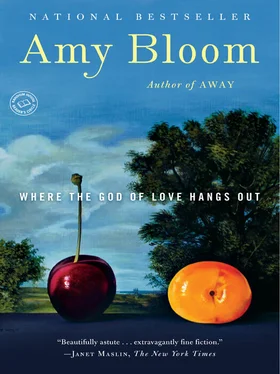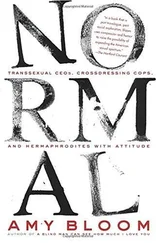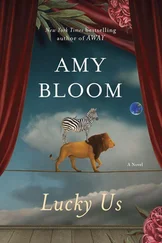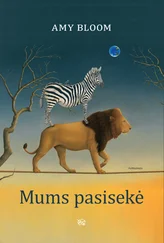Her mother-in-law talks tough about men. Every thing about Julia, her uniform of old jeans and black T-shirt, her wild gray hair and careless independence, says nothing is easier than finding a man and training him and kicking him loose if he doesn’t behave, and you would think she’d raised both her boys as feminist heroes. And Buster is good — Jewelle always says so — he picks up after himself, cooks when he can, gives the kids their baths, and is happy to sit in the Mommy row during Jordan’s Saturday swim. Lionel is something else. When he clears the table or washes up, swaying to Otis Redding, snapping his dish towel like James Brown, Julia watches him with such tender admiration that you would think he’d just rescued a lost child.
Jewelle runs her hands through the corn bread, making tracks in the crust, rubbing the big crumbs between her fingers. Julia’s house, even with Lionel in it, is one of Jewelle’s favorite places. At home, she is the Mommy and the Wife. Here, she is the mother of gifted children, an esteemed artist temporarily on leave. At her parents’ house, paralyzed by habit, she drinks milk out of the carton, trying to rub her lipstick off the spout afterward, borrows her mother’s expensive mascara and then takes it home after pretending to help her mother search all three bathrooms before they leave. She eats too much and too fast, half of it standing up and the rest with great reluctance, as if there were a gun pointed at her three times a day. In Julia’s house there’s no trouble about food or mealtimes; Jewelle eats what she wants, and the children eat bananas and Cheerios and grilled cheese sandwiches served up without even an arching of an eyebrow. Julia is happy to have her daughter-in-law cook interesting dishes and willing to handle the basics when the children are hungry and not one adult is intrigued by the idea of cooking.
Buster will not hear of anything but the corn bread — and — bacon stuffing Grammy Ruth used to make, and Jewelle, who would eat bacon every day if she could, makes six pounds of it and leaves a dark, crisp pile on the counter, for snacking. Julia seems to claim nothing on Thanksgiving but the table setting. She’s not fussy — she prides herself on her lack of fuss — but Julia is particular about her table, and it is not Jewelle or Buster who is called on to pick up the centerpiece in town, but Lionel, who has had his license suspended at least two times that Jewelle knows of. Jewelle packs the stuffing into Tupperware and leaves a long note for Julia so that her mother-in-law will not think that she has abdicated on the sweet potatoes or the creamed spinach.
In bed, spooning Buster, Jewelle runs her hand down his warm back. Sweetness, she thinks, and kisses him between the shoulders. Buster throws one big arm behind him and pulls her close. Lucky Jewelle, lucky Buster. If Jewelle had looked out the window, she would have seen Lionel and Julia by the tire swing, talking the way they have since they resumed talking, casual and ironic, and beneath that very, very careful.
Lionel cradles the bottle of Glenlivet.
“You drink a lot these days,” Julia says in the neutral voice she began cultivating twenty years ago, when it became clear that Lionel would never come back from Paris, would improve his French, graduate from L’Institut de Droit Comparé, and make his grown-up life anywhere but near her.
Lionel smiles. “It’s not your fault. Blame the genes, Ma. Junkie mother, alcoholic dad. You did your best.”
“It doesn’t interfere with your work?” It’s not clear even to Julia what she wants: Lionel unemployed and cadging loans from her, or drinking discreetly, so good at what he does that no one cares what happens after office hours.
“I am so good at my job. I am probably the best fucking maritime lawyer in France. If you kept up with French news, you’d see me in the papers sometimes. Good and good-looking. And modest.”
“I know you must be very good at your work. You can be proud of what you do. Pop would have been very proud of you.”
Lionel takes a quick swallow and offers the bottle to Julia, and if it were not so clear to her that he is mocking himself more than her, that he wishes to spare her the trouble of worrying by showing just how bad it already is, she would knock the bottle out of his hand.
Lionel says, “I know. And you? What are you doing lately that you take pride in?”
Julia answers as if it’s a pleasant question, the kind of fond interest one hopes one’s children will show.
“I finished another book of essays, the piano in jazz. It’s all right. It’ll probably sell dozens, like the last one. You make sure to buy a few. I’m still gardening, not that you can tell this time of year.”
“Buster says you’re seeing someone.”
“You have to watch out for Buster.” Julia turns away. “Well, ‘seeing.’ It’s Peter, my neighbor down the road. We like each other. His wife died three years ago.”
“No real obstacles, then.”
“Nope.”
“How old is he? White or black?”
“He’s a little older than me. White. You’ll meet him tomorrow. I didn’t want him to be alone. His daughter’s in Baltimore this year with her husband’s family.”
“That’s nice of you. Your first all-family Thanksgiving in twenty years — might as well have a few strangers to grease the wheels.”
“It is nice, and he’s only one person, and he is not a stranger to me or to Buster and Jewelle,” Julia says, and walks into the house, thinking that it’s too late in her personal day for talking to Lionel, that if she were driving she would have pulled off the road half an hour ago.
Julia starts cooking at six A.M. Early Thanksgiving morning is the only time she will have to herself. The rest of the day will be a joy, most likely, and so tiring that when Buster and Jewelle leave on Friday, right after Corinne is wrapped up in her car seat and Jordan squirms around for one last good-bye and their new car crunches down the gravel driveway, Julia will lie down with a cup of tea and not get up until the next day, when she will say good-bye to Lionel and Ari and lie down again. She reads Jewelle’s detailed note and thinks, Poor Jewelle must be thirty-one — it’s probably time for her to have Thanksgiving in her own house. Julia had to wrestle the holiday out of her own mother’s hands; even as the woman lay dying she whispered directions for gravy and pumpkin pie, creating a chain of panicked, resentful command from bedroom to kitchen, with her daughter and two sisters slicing and basting to beat back the inevitable. Julia managed to celebrate one whole independent Thanksgiving, with four other newly hatched adults, only to marry Lionel senior the next summer and find the holiday permanently ensconced, like a small museum’s only Rodin, at her new mother-in-law’s house. Julia can sit now in her own kitchen, sixty years old with a dish towel in her hand, and hear Ruth Sampson saying to her, “My son is not cut from the same cloth as other people. You treat him right.”
After this last, unexpected hurrah, Julia will let go of Thanksgiving altogether. She’ll arrive at Jewelle’s house, or Jewelle’s mother’s house, at just the right time, and entertain the children, and bring her own excellent lemon meringue pies and extravagant flowers to match their tablecloths. If things go well, maybe she’ll bring Peter, too. As Julia pictures Peter entering Buster’s front hall by her side, the two of them with bags of presents and a box of butter tarts, she cuts a wide white scoop through the end of her forefinger. Blood flows so fast it pools on the cutting board and drips onto the counter before she has even realized what the pain is.
“Ma.” Lionel is behind her with paper towels. He packs her finger until it’s the size of a dinner roll and holds it up over her head. “You stay like that. Sit. And keep your hand up.”
Читать дальше












